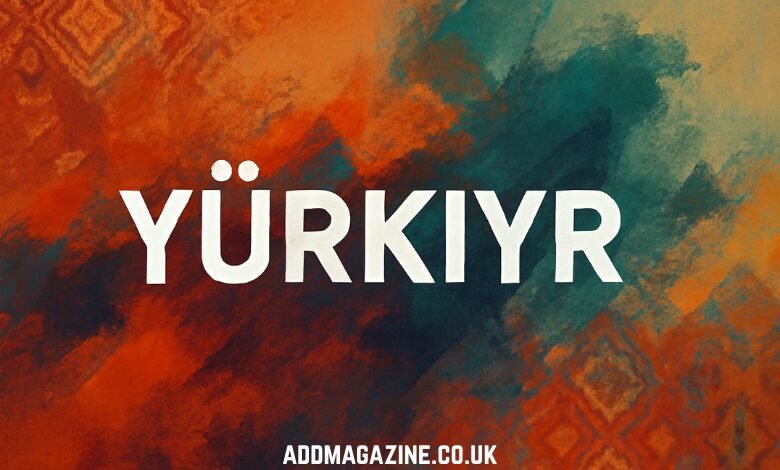If you’re ever stuck trying to come up with fresh ideas for a blog post, video, or presentation, you know how frustrating it can be to start from scratch. Whether you’re a student, teacher, blogger, or content creator, a great story can instantly capture your audience’s attention and set the tone for your content. But where do you find these stories? How can you ensure your ideas grab attention and set themselves apart from the rest?
The answer lies in choosing versatile story topics that can be adapted to different themes and angles. These topics are perfect for crafting multiple narratives, ensuring that you have a wide range of stories at your fingertips. Whether you’re working on a short story, a presentation, or an in-depth blog post, a well-chosen story prompt will help you ignite your creative spark.
In this blog, we offer 100+ categorized story topics designed to inspire a range of interpretations. You’ll discover how to develop each idea into a compelling story, presentation, or blog post that keeps your audience engaged and wanting more. Let’s dive into the variety of topics that can help you create stories with multiple perspectives and endless possibilities.
100+ Story Ideas for Your Next Blog, Presentation, or Creative Project
- The mental health struggles encountered by digital nomads and remote workers in a constantly connected world.
- How childhood trauma manifests in adulthood without being recognized.
- The social impact of ‘quiet quitting’ on workplace mental health.
- Exploring the stigma surrounding mental health in indigenous communities.
- How celebrity culture inadvertently perpetuates unrealistic mental health standards.
- The role of language in perpetuating mental health stigma in non-English-speaking cultures.
- The psychology behind ‘comparison culture’ on social media and its effect on self-esteem.
- How mental health is portrayed in historical fiction, and what it gets wrong.
- How environmental stressors in urban settings silently impact mental health.
- Exploring how introverts deal with social anxiety in an extroverted world.
- How sleep deprivation contributes to emotional instability and mental health decline.
- The effects of long-term loneliness in older generations and its connection to mental health.
- How the pressure to ‘look happy’ on social media hides deep emotional struggles.
- Exploring the connection between diet, gut health, and emotional well-being.
- The role of community support in overcoming mental health stigma in rural areas.
- How overcoming mental health challenges can reshape one’s sense of identity.
- The rise of ‘mental wellness’ influencers and their unintended impact on mental health perception.
- Exploring the psychological toll of constant comparison in the age of social media influencers.
- Why societies value productivity over mental health and how this creates stigma.
- The impact of seasonal changes on mental health and how to combat it.
- How virtual reality can both exacerbate and alleviate mental health symptoms.
- The silent effects of job insecurity on mental health.
- Exploring the intersection of mental health and economic inequality.
- How religious communities approach mental health stigma differently from secular societies.
- The hidden stigma of mental health in the military and its consequences.
- How cultural expectations around body image lead to mental health struggles.
- Why mental health care access varies greatly depending on geographic location.
- The rise of “perfection culture” and its destructive impact on mental health.
- How the stigma of mental health is perpetuated in educational institutions.
- The psychological burden of dealing with toxic positivity in the workplace.
- How travel influences mental health, for better or worse.
- The unique mental health challenges faced by those living in disaster-prone regions.
- How parenting styles unknowingly contribute to children’s mental health struggles.
- The effects of constant productivity expectations on creative professionals’ mental health.
- Exploring the link between childhood bullying and adult mental health struggles.
- The growing impact of climate anxiety on youth mental health.
- Why mental health stigma affects men differently and how it shapes their help-seeking behavior.
- The long-term mental health consequences of social isolation among elderly individuals and its impact on overall well-being.
- How social media algorithms worsen mental health by creating ‘filter bubbles.’
- The stigma surrounding self-care rituals in hyper-competitive cultures.
- How introverts face different mental health challenges than extroverts.
- The mental health consequences of body shaming on young adults.
- How class differences shape one’s access to mental health care.
- The unexpected mental health impact of living in a fast-paced city.
- Exploring how mental health stigma in sports leads to a lack of proper care for athletes.
- The impact of not recognizing mental health issues in creative professions like writers and artists.
- The intersection of disability and mental health stigma in society.
- Exploring the mental health risks of achieving unattainable beauty standards.
- The rise of online therapy and its impact on the stigma surrounding mental health.
- How historical events influence collective mental health across generations.
- The mental health impact of being constantly available in a hyper-connected world.
- The role of cultural traditions in masking mental health issues in certain communities.
- How the “hustle culture” contributes to burnout and mental health struggles.
- The mental health effects of unaddressed grief and mourning in modern society.
- The mental health implications of living with a chronic illness.
- The role of genetics in mental health and the stigma surrounding inherited mental health disorders.
- How the portrayal of mental health in media influences public perception and stigma.
- The unseen toll of being a caregiver on mental health.
- Exploring how societal expectations of “success” lead to personal mental health crises.
- The silent struggle of individuals living with co-occurring mental health and substance use disorders.
- The unique mental health challenges faced by trans individuals.
- How the pressure to ‘normalize’ mental health struggles can inadvertently increase stigma.
- The effects of academic stress on student mental health during finals season.
- How the overuse of self-help content contributes to mental health anxiety.
- The mental toll of striving for perfection in the workplace and its effect on mental health.
- Exploring the role of mental health professionals in breaking down stigma in communities.
- The stigma of mental health issues in the tech industry.
- How cultural and societal expectations of gender impact mental health.
- The mental health effects of high levels of student debt.
- The role of alternative therapies in breaking down traditional mental health stigma.
- How unaddressed trauma from childhood affects adult mental health.
- The mental health impact of living in a ‘winner-takes-all’ society.
- How modern relationships contribute to mental health anxiety.
- Exploring how religious beliefs intersect with mental health care and stigma.
- The psychological toll of living through natural disasters or environmental collapse.
- The mental health impact of unrealistic portrayals of success in media.
- The psychological effects of working in the gig economy and its toll on workers’ mental health.
- Exploring the unspoken mental health struggles in immigrant communities.
- How materialism impacts mental health and increases societal pressure.
- The untold mental health struggles faced by parents raising children with disabilities.
- The growing mental health crisis among young people due to societal instability.
- The connection between social class and mental health care access.
- How mindfulness practices help to counter mental health stigma.
- The role of storytelling in breaking down the stigma of mental health.
- How artificial intelligence is being used to detect mental health issues before they manifest.
- The stigma of mental health care in developing countries and how to overcome it.
- The intersection of race and mental health stigma in healthcare systems.
- The long-term mental health impact of economic crises.
- Exploring how non-Western approaches to mental health differ from traditional Western views.
- The mental health consequences of imposter syndrome in academic settings.
- How “grind culture” impacts mental health in corporate settings.
- The mental health risks of constant exposure to world news and negativity.
- The role of childhood education in shaping future mental health attitudes.
- Exploring how the legal system contributes to mental health stigma in criminal justice.
- The mental health consequences of being raised in a ‘success-driven’ household.
- How ‘cancel culture’ and public shaming affect the mental health of individuals.
- The relationship between mental health stigma and lack of access to adequate housing.
- Exploring how family dynamics shape mental health perceptions.
- The mental health challenges of individuals transitioning from school to the workforce.
- The role of meditation and mindfulness in reducing mental health stigma in society.
The Power of Versatile Story Topics
Before we dive into the specific topics, let’s explore why it’s so important to choose prompts that are adaptable. A well-chosen story topic can serve multiple purposes. It can be:
- Engaging for different audiences: A flexible topic allows you to tailor the story to various audience groups. Whether you’re writing for teenagers or professionals, you can adjust the narrative tone and content to match their interests.
- Suitable for various formats: A versatile story idea can be molded into a blog post, social media content, podcast, or video. You can create a text-based story or use visuals, sound, or even interactive elements to bring the story to life.
- Creative and open-ended: These types of prompts encourage you to explore different directions and perspectives, enhancing your creative process and making your writing or presentation feel fresh and dynamic.
Categorized Story Topics for All Occasions
Here are some categorized story topics that can serve as a foundation for multiple stories. You can easily build on these prompts to suit your purpose, whether you’re writing, speaking, or presenting.
1. Personal Growth and Reflection
Personal growth stories resonate with a wide range of audiences, as they focus on transformation, learning, and self-discovery. These stories can touch on overcoming adversity, finding inner strength, or embracing change.
- Topic 1: The Journey of Overcoming a Fear
- Story Angle 1: Write about a personal experience where you overcame a deep-seated fear and what you learned.
- Story Angle 2: Present this story as a self-help guide, offering tips for overcoming common fears.
- Topic 2: Discovering a Hidden Talent
- Story Angle 1: Write a narrative about how you stumbled upon a talent you didn’t know you had.
- Story Angle 2: Explore the theme of potential in your presentation, encouraging others to discover their hidden strengths.
- Topic 3: The Power of Resilience After Failure
- Story Angle 1: Tell a story about how you bounced back from a personal failure and what it taught you.
- Story Angle 2: Use this as a motivational piece, outlining steps to develop resilience after setbacks.
2. Technology and Innovation
Stories about technology and innovation are constantly evolving, providing opportunities to explore future possibilities, breakthroughs, and challenges.
- Topic 4: The Rise of Artificial Intelligence in Everyday Life
- Story Angle 1: Present a fictional story set in a world where AI governs daily life.
- Story Angle 2: Write an informative blog on how AI is transforming industries such as healthcare, education, or finance.
- Topic 5: A Glimpse into the Future of Transportation
- Story Angle 1: Create a story about a future where self-driving cars are the norm and society has adapted to this technology.
- Story Angle 2: Develop a presentation on the current innovations in transportation and their potential impact on the environment.
- Topic 6: The Ethical Dilemmas of Biotechnology
- Story Angle 1: Craft a short story about a character struggling with the implications of genetic modification or cloning.
- Story Angle 2: Offer a balanced discussion on the ethical concerns surrounding genetic engineering and biotechnology.
3. Social Issues and Community Impact
Social issues are powerful story prompts because they allow for a wide range of discussions and solutions. They also offer an opportunity to raise awareness and spark change.
- Topic 7: The Fight for Equal Education
- Story Angle 1: Share the journey of a student overcoming barriers to education in an underserved community.
- Story Angle 2: Write a persuasive piece discussing the importance of equal access to education and potential solutions.
- Topic 8: The Power of Volunteerism in Local Communities
- Story Angle 1: Narrate a personal story of how volunteering changed both your life and your community.
- Story Angle 2: Use this topic to create a presentation on the positive impact of volunteering and how to get involved.
- Topic 9: Overcoming Homelessness: A Story of Hope
- Story Angle 1: Share a real-life or fictional story about a person who overcame homelessness through community support.
- Story Angle 2: Present statistical insights and strategies for tackling homelessness in your region.
4. History and Cultural Exploration
History and culture provide rich grounds for storytelling, offering narratives of human achievement, tragedy, and identity.
- Topic 10: Rediscovering Ancient Civilizations
- Story Angle 1: Create a fictional tale about an archaeological expedition discovering the secrets of an ancient civilization.
- Story Angle 2: Write an educational blog on the importance of preserving and learning from ancient cultures.
- Topic 11: The Legacy of Civil Rights Movements
- Story Angle 1: Share the story of a historical figure who played a pivotal role in a civil rights movement.
- Story Angle 2: Explore how modern movements continue the fight for justice and equality.
- Topic 12: Cultural Traditions Around the World
- Story Angle 1: Write about a personal experience with a cultural tradition that impacted you.
- Story Angle 2: Create a travel guide showcasing unique cultural traditions in different countries.
5. Science Fiction and Fantasy
Science fiction and fantasy provide the freedom to create worlds beyond our current understanding, allowing you to explore possibilities without boundaries.
- Topic 13: Life on a Different Planet
- Story Angle 1: Write a story about humans colonizing a new planet and adapting to an alien environment.
- Story Angle 2: Present this idea as a speculative piece discussing how humanity might prepare for space colonization.
- Topic 14: The Discovery of Magic in a Modern World
- Story Angle 1: Tell the story of an ordinary person discovering they have magical powers.
- Story Angle 2: Use this topic to analyze the cultural fascination with magic in contemporary media.
- Topic 15: Time Travel and the Consequences of Changing History
- Story Angle 1: Write about a time traveler who attempts to change a historical event and the unforeseen consequences.
- Story Angle 2: Offer a philosophical discussion on the ethics and paradoxes of time travel.
Transforming These Story Ideas into Presentations
Each of the above topics offers numerous paths for development. Whether you’re writing a blog post, delivering a speech, or creating a video, here are some tips for turning these ideas into polished presentations:
- Define the Purpose: Identify the central message or goal of your story. Is it to inform, inspire, or entertain? Your purpose will guide the tone and structure.
- Create a Strong Opening: Start with a hook—something that grabs attention immediately. A compelling question, a surprising fact, or a vivid description can engage your audience from the first sentence.
- Develop a Clear Structure: Organize your story into a clear beginning, middle, and end. Introduce the topic, provide context, and lead your audience through the narrative.
- Incorporate Visuals: Visual aids like images, infographics, or slides can enhance your presentation, making it more dynamic and memorable.
- Engage Your Audience: Encourage participation, whether by asking questions, providing space for feedback, or incorporating interactive elements into your content.
- Practice the Delivery: Whether you’re writing or speaking, rehearsing will help ensure that your message is clear, concise, and impactful.
Conclusion
Storytelling is an essential skill, whether you’re a writer, speaker, or content creator. By selecting the right story topics—those that are versatile and adaptable—you can craft engaging narratives that resonate with a wide audience. These 100+ categorized story ideas provide ample inspiration to develop unique content for any occasion. With a clear structure, engaging visuals, and thoughtful delivery, you’ll be able to turn any story topic into a captivating presentation that leaves a lasting impression.




